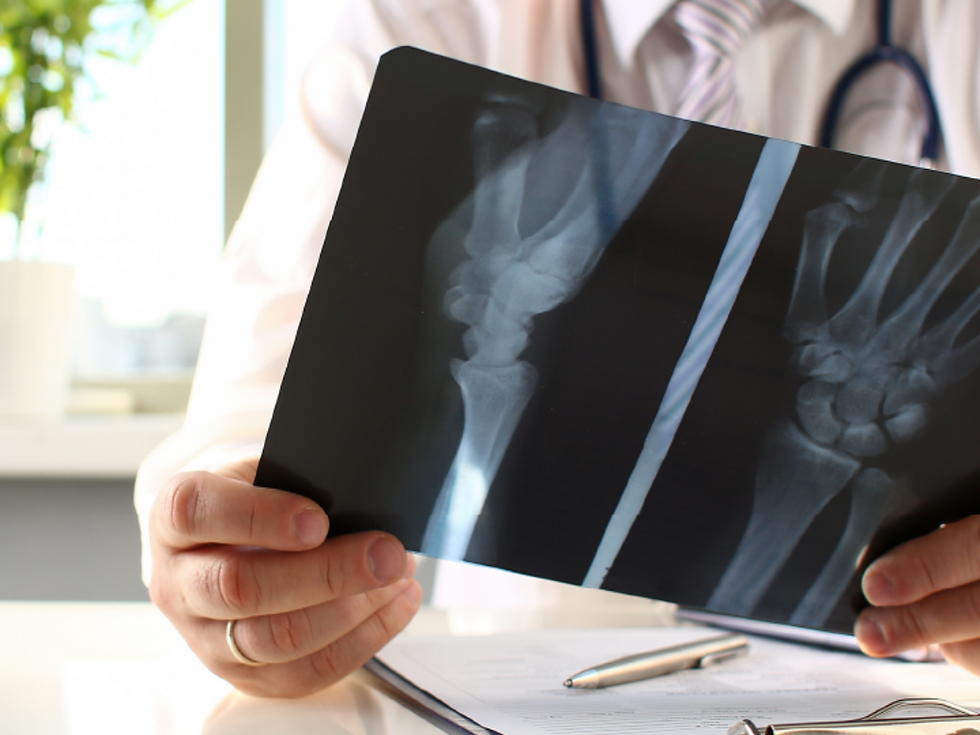What Is TRT (Testosterone Replacement Therapy) and How Can It Benefit You?
- NDUC

- Mar 14, 2025
- 4 min read
Testosterone Replacement Therapy (TRT) has been gaining attention as a way to help individuals, particularly men, address low testosterone levels and improve their overall well-being. But what exactly is TRT, and how can it benefit you? In this blog post, we’ll break down what TRT is, its potential benefits, and how Next Door Urgent Care can support you through the process.

1. What Is Testosterone Replacement Therapy (TRT)?
Testosterone Replacement Therapy (TRT) is a medical treatment designed to help individuals with low testosterone levels restore their hormone balance. Testosterone is a vital hormone for both men and women, although it is most prominent in men. It plays a significant role in maintaining muscle mass, energy levels, bone density, sexual health, mood regulation, and more.
As men age, testosterone production naturally declines, typically starting around the age of 30. Some individuals may experience a more significant drop in testosterone levels, leading to symptoms that impact their quality of life. TRT involves supplementing the body with synthetic or bioidentical testosterone to restore optimal hormone levels.
2. Common Symptoms of Low Testosterone
Recognizing the signs of low testosterone can help you determine whether TRT may be beneficial for you.
Common symptoms of low testosterone include:
Fatigue or decreased energy levels
Reduced muscle mass and strength
Low libido or sexual dysfunction
Difficulty concentrating or brain fog
Increased body fat
Mood swings or irritability
Depression or anxiety
Decreased bone density or increased risk of fractures
If you are experiencing any of these symptoms, it may be time to consider consulting with a healthcare provider to determine if low testosterone is the cause.
3. How Does TRT Work?
TRT works by supplementing the body with testosterone, which helps restore hormone levels to a more youthful and optimal range. There are several methods of administering testosterone, and the right method for you will depend on your lifestyle and preferences.
Common forms of TRT include:
Injectable Testosterone: Testosterone is injected into the body, typically into the muscle, every one to two weeks.
Topical Gels or Creams: Testosterone is applied to the skin, allowing the hormone to be absorbed into the bloodstream.
Patches: Testosterone patches are worn on the skin, releasing a steady amount of hormone throughout the day.
Pellets: Small pellets are implanted under the skin and gradually release testosterone over several months.
Each method has its pros and cons, and your healthcare provider will work with you to determine the best option based on your needs.
4. The Benefits of TRT
TRT offers a variety of benefits that can significantly improve your quality of life. If you’ve been struggling with low testosterone levels, you may notice a range of improvements once your hormone levels are restored.
Some of the most common benefits include:
Increased Energy Levels: One of the most immediate benefits of TRT is a noticeable increase in energy and vitality. Many individuals report feeling more awake and alert after starting therapy.
Improved Mood and Mental Clarity: TRT can help improve mood, reduce feelings of anxiety or depression, and enhance cognitive function. Many individuals report experiencing improved mental clarity and better concentration.
Enhanced Libido and Sexual Function: Testosterone plays a key role in sexual health. By restoring testosterone levels, individuals often experience a boost in libido, better sexual function, and improved overall satisfaction.
Increased Muscle Mass and Strength: Low testosterone is often associated with a loss of muscle mass. TRT can help promote muscle growth, strength, and recovery, making it easier to stay active and healthy.
Improved Bone Density: Testosterone is essential for maintaining strong bones. By restoring testosterone levels, TRT can help reduce the risk of bone fractures and osteoporosis.
Reduction in Body Fat: Testosterone helps regulate fat distribution in the body. Individuals on TRT may notice a reduction in body fat, particularly in areas such as the abdomen.
Improved Quality of Life: Overall, TRT helps many individuals feel more youthful, energized, and in control of their health and well-being.
5. Are There Any Risks or Side Effects?
Like any medical treatment, TRT comes with potential risks and side effects. While most individuals tolerate the therapy well, it’s important to be aware of possible side effects, which may include:
Acne or oily skin
Increased red blood cell count (which can increase the risk of blood clots)
Sleep apnea or worsening of existing sleep apnea
Prostate enlargement or increased prostate-specific antigen (PSA) levels
Mood swings or aggression (in rare cases)
Breast tenderness or enlargement (gynecomastia)
It’s crucial to have regular check-ups with your healthcare provider while undergoing TRT to monitor for any potential side effects and ensure the treatment is working effectively.
6. How Can Next Door Urgent Care Help?
At Next Door Urgent Care, we offer comprehensive consultations and testing to help determine if testosterone replacement therapy is right for you. Our team of healthcare professionals will work closely with you to evaluate your symptoms, conduct hormone testing, and develop a customized treatment plan.
We provide convenient access to TRT, whether through injections, creams, or other methods, and our staff is here to guide you throughout the process. We’ll ensure you fully understand the treatment, its benefits, and any potential risks. With our support, you can take charge of your health and feel your best.
7. Is TRT Right for You?
If you’ve been experiencing symptoms of low testosterone, TRT may be an effective solution to improve your overall health and quality of life. The first step is to consult with a healthcare provider to determine if TRT is the right course of action for you.
At Next Door Urgent Care, we are committed to providing the best care and resources for your health. If you're considering TRT, contact us today to schedule a consultation and take the first step toward feeling better and regaining your vitality.





Comments